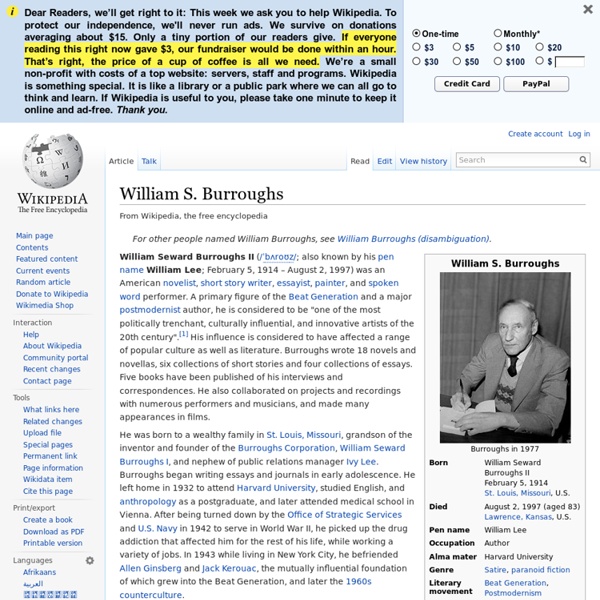William S. Burroughs

UK Recovery Radio
DS Daily: D & A daily news
Drink and Drugs News
DrugScope | Home
Black Poppy's Junk Mail | By People who use Drugs for People who use Drugs
The Vienna Declaration Vienna Declaration - Vienna Declaration
In response to the health and social harms of illegal drugs, a large international drug prohibition regime has been developed under the umbrella of the United Nations.1 Decades of research provide a comprehensive assessment of the impacts of the global “War on Drugs” and, in the wake of the XVIII International AIDS Conference in Vienna, Austria, the international scientific community calls for an acknowledgement of the limits and harms of drug prohibition, and for drug policy reform to remove barriers to effective HIV prevention, treatment and care. The evidence that law enforcement has failed to prevent the availability of illegal drugs, in communities where there is demand, is now unambiguous.2,3 Over the last several decades, national and international drug surveillance systems have demonstrated a general pattern of falling drug prices and increasing drug purity—despite massive investments in drug law enforcement.4,5 William B McAllister.
Exchange Supplies: the UK's leading specialist injecting equipment supplier
UK Recovery Federation
Related:
Related:



